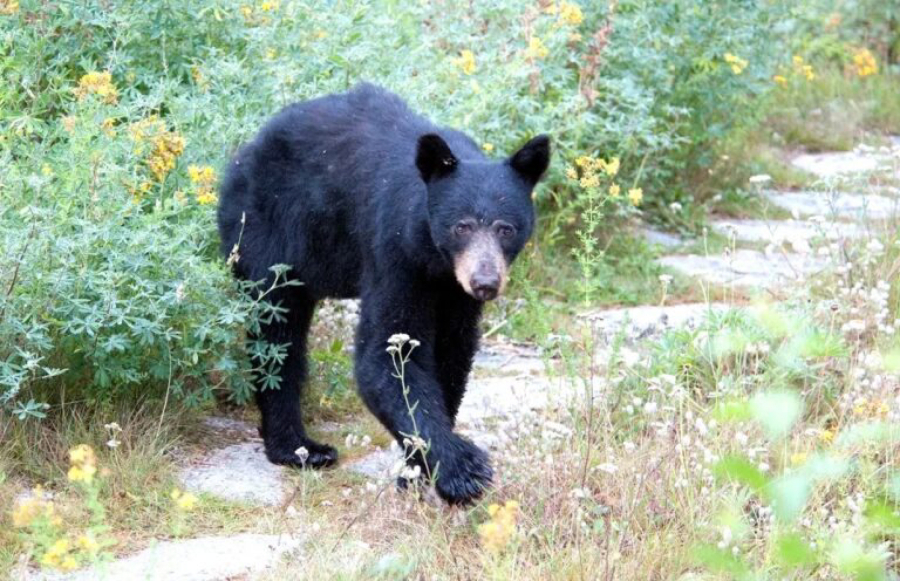North Cascades National Park has dealt with bear troubles this summer after the opportunistic omnivores had a chance to snack on human food that visitors failed to secure.
Portions of the park and a stretch of Highway 20 are closed as the Sourdough Fire continues to burn, consuming more than 4,500 acres near Ross Lake. The smaller Blue Lake Fire has closed parts of the park as well. But other pockets have been off-limits this year due to an uptick in bear interactions with people.
Last month, the National Park Service said that the remote Terror Basin cross-country zone would be closed to all use until further notice because bears had gotten into human food in the area, approached people and destroyed property. A photo posted on the park’s climbing blog shows a sleeping bag, tent and other gear thrashed by a bear in the basin.
Meanwhile, officials closed the picnic area at the popular Cascade Pass Trailhead after a bear obtained human food in that part of the park.
The Sourdough Fire will likely keep many people away from the park for the rest of this season. But the bear issues underscore both a rise in visitors to the North Cascades and the need for people to be more careful with food in the backcountry and at trailheads.
“Many issues stem from unintentional feeding of bears,” Katy Hooper, deputy chief of visitor services at the park, wrote in an email.
Park officials reported that improper food storage at the Cascade Pass Trailhead was to blame for bears obtaining food there.
During another incident in the spring, Hooper said several bears were looking for new grass shoots – some of the most nutritious food for bears – near Cascade River Road while it was still closed to vehicle traffic.
Several visitors were camped illegally by the road around that time and didn’t secure their food properly, Hooper said. The bears took advantage and chowed down.
If a bear secures a big food reward so early in the season, it can shape their behavior in later months when the park is busier.
“Throughout the season, bears are seeking out their natural foods in places that often put them close to areas used by humans,” Hooper said. The park is now entering peak berry season and foraging bears could end up near backcountry campsites.
The North Cascades, like many other national and state parks, has seen an increase in visitors in recent years, in part due to a pandemic-era boom of outdoor recreation.
With more visitation comes less experienced travelers, including some who aren’t familiar with bear country etiquette, Hooper noted. Failing to properly store food, trash or even toiletries can attract animals and put wildlife and people both at risk.
Hooper said park staff try to intervene early after bears have run-ins with people.
These efforts often involve hazing bears away from areas with high foot traffic using tools like paintball guns or air horns or deploying the Department of Fish and Wildlife’s Karelian bear dog team.
The National Park Service warns against leaving food or other scented items unattended if they are not properly stored in a bear-resistant canister, locker or locked car with the windows up. Hanging food in a bag from a tree is another option, but one that’s not always possible in alpine areas.
Keeping food in tents or leaving dirty dishes or food scraps around camp is not recommended.
As the Park Service notes: “A fed bear is a dead bear.”
Washington State Standard is part of States Newsroom, a nonprofit news network supported by grants and a coalition of donors as a 501c(3) public charity. Washington State Standard maintains editorial independence. Contact Editor Bill Lucia for questions: info@washingtonstatestandard.com. Follow Washington State Standard on Facebook and Twitter.



